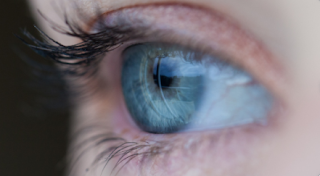"A patient with retinitis pigmentosa regains some vision using a gene derived from algae" by Yasser Elshatory, MD, PhD, FACS

Nerve impulses convey humans' special senses. Without nerve impulses, humans are unable to feel, taste, smell, hear or see. These impulses depend on special proteins known as ion channels, that allow electrolytes like sodium, potassium, and chloride to pass across cell membranes. In single cell organisms, like algae, some of these ion channels are light-sensitive (light-gated ion channels); meaning, light can activate the ion channel, and subsequently affect a downstream cellular process (like cellular motility). These light-gated ion channels have been utilized extensively in the past two decades to study neural circuits. This technique is referred to as optogenetics. Earlier this week, researchers in Pittsburgh, Switzerland and France reported results of using optogenetics for the first time in humans. A microbial protein conferring light sensitivity onto retinal ganglion cells was expressed using viral-based gene therapy deliver...



